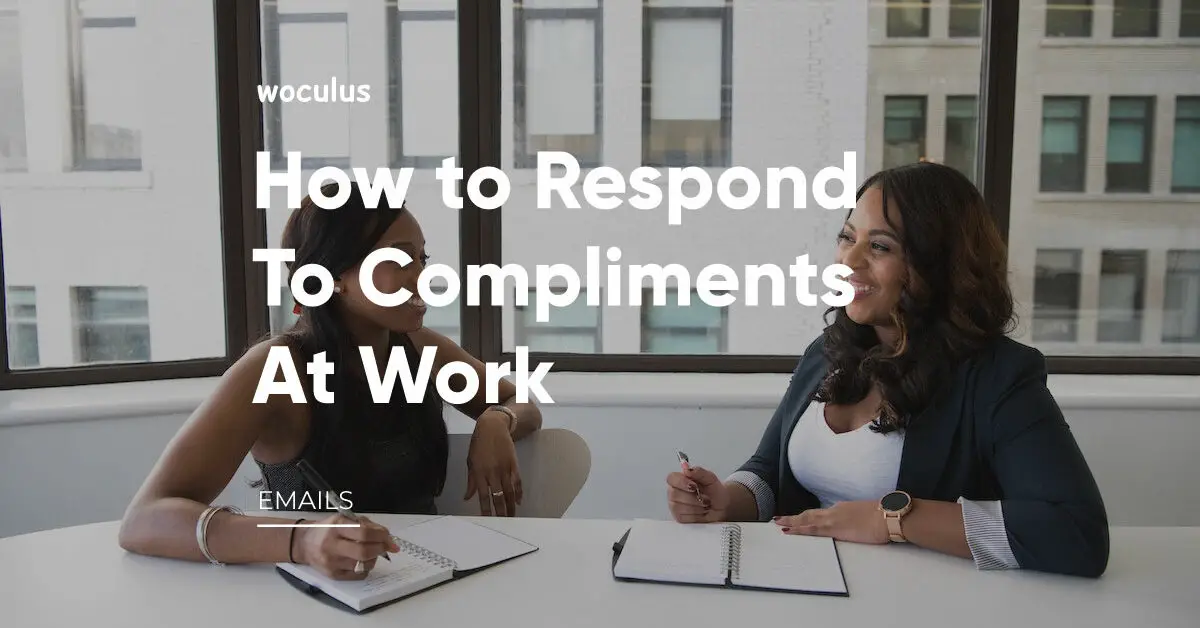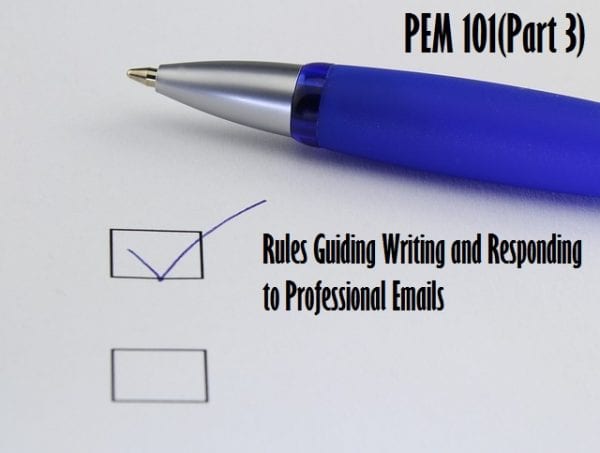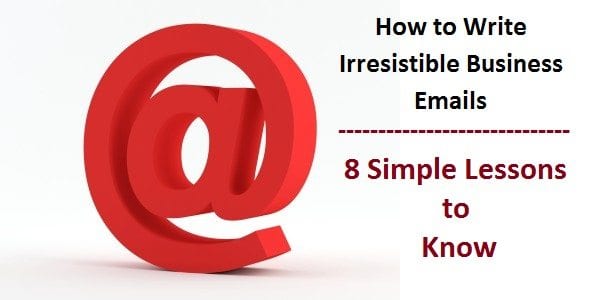Everybody loves compliments, right? I mean, who doesn’t? It’s always nice to be appreciated by your boss or colleagues for a job well done. The problem is how to properly receive it without making the situation awkward, or downplaying the compliment, or giving other people the credit when you truly deserve it, and ultimately how to respond to compliments professionally.
Giving compliments plays a crucial role in building and maintaining relationships in a professional environment like a company, organization, and university.
Knowing how to respond to compliments can help you acknowledge the affirmation while continuing to build your professional working relationships and showing humility. A compliment is one of the most powerful ways to let someone know that you value and appreciate them, it can be overwhelming and sometimes embarrassing at the same time.
Imagine a situation where you have been working on a particular presentation on a new product to give to your board of directors for the past couple of weeks. You and your team spent hours organizing ideas, coming up with the best way to express yourself, and double-checking your facts. Then the meeting came and you were able to deliver an outstanding presentation and answer follow-up questions.
The meeting is over and people are going on about their business. On your part, you think the presentation was a success and you think everything went well. Then one of your supervisors came into your office and gave you a compliment saying “You did an excellent job on that presentation. You made our job relatively easy and we look forward to implementing your ideas.”
Wow! that’s a super exciting compliment you have just received.
So, how do you respond to compliments professionally?
Responding to compliments can be difficult, especially if you feel like accepting them will make you seem vain.
However, politely accepting a compliment will make you seem more modest than deflecting or rejecting them.
This article will discuss why responding to compliments is important and how to acknowledge them, with helpful examples.
How to Respond to Compliments Professionally
1. Smile and Acknowledge the Compliment
Smiling is a great way to show your boss, colleagues, client, and managers how you feel when they recognize and compliment you. It’s a great ingredient for responding to compliments professionally. Smiling is a great way to immediately show your appreciation before even speaking out to respond to compliments.
You may feel compelled to say all sorts of things when someone compliments you, but sometimes the best way to acknowledge a compliment is to simply say thank you to the person.
When responding to compliments from people be sure to smile and look them in the eye as you thank them. This shows your confidence and professionalism as you respond to compliments.
Research shows that when you receive a compliment be sure to simply and humbly say “Thank you” or “Thank you; I appreciate your kind words.”
When you respond to compliments, you show gratitude for the other person’s kind remarks and do not come off as vain, bashful or prideful.
Examples of What to Say When Responding to Compliments at Work;
- Thank you
- Thank you; I appreciate your kind words.
- I’m glad you liked it.
- I appreciate you saying that
- That’s very kind of you.
- Thanks for noticing
- I appreciate that.
- That means a lot coming from you.
- Thanks for noticing.
- You think so? Thanks so much!
- How nice of you to say that.
- How nice of you to notice.
- That’s nice to hear.
- Thanks. I’m glad you enjoyed it.
2. Give Credit to Whoever Deserves it
When people compliment you it is important to share credit with those that contributed to the success of the project or work you are being complimented for. If you are complimented on a particular project that involved the contribution of other people like your team or colleagues, don’t take all the credit for all the achievement, make sure you acknowledge others that made the project or presentation a success.
Responding to compliments like this will show that you can both be dependable and rely on others to meet goals. Plus, it will make sure that you are willing to share the credit for a job well done.
For example, you can say something like “Thank you for noticing, but it would not have been possible without the help of Peter and Sade, their input was really helpful”
If you are leading a project, accept the compliment first, and then credit your team for the effort they put in. When someone compliments you for a project you lead, they aren’t complimenting only the results you’ve achieved, they are also complimenting your ability as a leader. The project was a success under your leadership after all, so take the compliment wholeheartedly and give credit to your team also.
For example ” Great work on the presentation today.” “Aww! Thanks.” My team really worked hard on this and I am glad we were able to achieve such a huge project.
3 . Let the Person Know You Appreciate the Compliment
Instead of downplaying your work or changing the subject, give credit to other people and let the person giving the compliment know how much it means to you. A person offering you a compliment has nothing to lose or gain by complimenting you, so it is only polite to appreciate them and acknowledge their kind words.
Don’t downplay your hard work and deprive yourself of a good compliment. Look them in the eye and thank them for the compliment.
4. Return Compliments Sincerely, but Not Competitively.
When you respond to compliments, don’t do it competitively.
Sometimes you might feel the need to be polite and you end up downplaying your abilities by redirecting a compliment you just received towards the person.
For example, you might say something like “Thanks, but not anywhere as good as yours though.”
Responding to compliments like this gives the impression that you are insecure and sucking up to the person or even trying to outdo the person.
Therefore, you can redirect the compliment by saying “Thanks, yours was great too.”
This is a non-competing complementary reply that you can give to the person who complimented you.
5. Take the Opportunity to Get More Feedback
When you receive a compliment, you can also use it as an opportunity to get more feedback or more conversation from the person that complimented you.
For example, if your supervisor gives you a compliment about your proposal. Thank them and ask them for feedback.
You can say something like “I appreciate that coming from you. Do you have any suggestions for how I can apply my learnings in my next chapter?”
A senior member of your department gave you a compliment about your presentation. In this case, you can invite them to share more ideas.
Try saying, “Thank you. Do you have any suggestions that you’d like me to keep in mind?”
How to Reply When Someone Appreciates Your Work
It’s a great feeling when someone appreciates your work. Getting that pat on the back for a well-done job can be exhilarating. The dilemma is how to respond. To save you from this dilemma, we’ve included samples to update you on how to reply when someone says “great job”:
Sample to Reply when Someone Appreciates Your Work
Subject: Grateful for Your Appreciation Dear [Name], Thank you for your kind words of appreciation. Your recognition of my work means a lot to me. It's truly gratifying to know that my efforts have made a positive impact. I'm grateful for your support and encouragement, and it motivates me to continue striving for excellence. Thank you once again for your kind appreciation. Best regards, [Your Name]
Reply when Someone Says Great Job Sample
Subject: Appreciation for Your Feedback Dear [Name], I wanted to express my gratitude for your feedback and the compliment. Your recognition means a lot to me and serves as motivation to continue giving my best. I appreciate your support and encouragement. It's a pleasure working with you, and I look forward to delivering more exceptional results in the future. Thank you once again for your kind words. Warm regards, [Your Name]
Respond to A Compliment at Work Email Sample
Subject: Grateful for Your Compliment Dear [Name], Thank you for your kind compliment! I truly appreciate your recognition of my work. It's wonderful to receive positive feedback and know that my efforts are valued. Your words have made my day and inspire me to continue giving my best. I'm grateful to be a part of such a supportive team. Thank you again for your kind words. Best regards, [Your Name]
How to Reply to Well Done from Boss Email
Dear [Boss's Name], Thank you for acknowledging my work. Your recognition means a lot to me. I'm grateful for your guidance and leadership, which have contributed to my success. Your support and confidence in my abilities motivate me to excel further. I appreciate the opportunity to be part of this team and will continue to give my best. Thank you once again for your kind words and encouragement. Sincerely, [Your Name]
Guidelines When Giving a Compliment
How do I give a compliment? When do I give a compliment? These may be the questions on your mind. Let’s explore this.
Knowing how to give a compliment and appreciate others is a fundamental leadership skill. Positive feedback and praise can have a powerful effect on the professional work environment. When you notice conduct or hard work that you appreciate, communicating positive feedback can encourage, motivate, balance out criticism, bolster esteem, and may prevent an employee from giving up.
When giving compliments, take note of the following:
1. Be Sincere
When giving a compliment, be sure that it is sincere and authentic. Don’t compliment someone because you need something from them. Don’t make them feel good about themselves before giving them difficult feedback or cheer them up after a mistake.
If your intentions are not genuine then your compliment is not genuine either and this does not tell well about your personality.
Don’t compliment someone because you feel you should rather compliment them because you felt compelled to recognize their hard work and how they impacted you and others.
2. Don’t Give Backhanded Compliments
A backhanded compliment is an insult disguised as a compliment. It is a compliment that blurs the line between an insult and a compliment.
Backhanded compliments can be very damaging, They usually stem from a person’s insecurities about themself,
Sometimes, the person giving the “compliment” might not realize they’re being hurtful, but unfortunately, others know exactly what they’re saying.
For example, saying something like “I didn’t expect your team to get the deal — congratulations!”
or “Great presentation today, but Tim would have done a better job.”
This is a backhanded compliment that can be damaging and hurtful.
3. Be Specific with Your Compliments
When giving feedback or compliment, be sure to be specific about what you are complimenting the other party for. This way the person does not doubt what you are complimenting them about.,
For example, if you say “That was great”. let them know what was great. If you say “I am proud of what you did.” let them know why you are proud of them.
When we share, it is important to give details and examples to help the person comprehend the context of our remarks. When we are clear with our compliments, the person understands exactly what we are expressing and why.
- Incomplete compliment: “That was great!”
- Specific compliment: “John, that was a great job you did on the software, I can now successfully backup my data.”
4. Let the Person know How They Impacted You
A compliment is always more about the giver than the receiver. If possible share what the person did and how it affected you and the people around you.
If you want to give a powerful complement, give the person a glimpse of what you experienced and how it impacted you or others.
You can share how their leadership impacted you or the company,
For example,
“Kelvin, I wanted to let you know I really appreciate how you challenged the “No leave policy” adopted by the company. I and some of my team have been trying to bring it up but the fear of the boss shooting it down made us keep quiet. I watched how you encouraged all of us to speak up and share ideas, and I felt comfortable taking risks. I really enjoyed working with you and feel like I am growing every day. Thank you.”
5. Focus More on the Effort Instead of the Result
When giving a compliment it is more advisable to focus on the effort the person put into achieving the result than the result itself. Appreciate the time, sacrifice, hard work. This makes the compliment more genuine and emphatic.
for example “Matt, I am blown away by the content you created and put together for the client. I can’t even imagine all the hours, work, and creativity that went into making sure that the client had high-quality content. Thank you for everything you did behind the scenes on this project.”
Conclusion
Responding to compliments says a lot about who you are. It opens a window into your personality and reservations. This is why it’s important to be cautious when responding to compliments. Follow the steps listed in this article to improve your ability.







